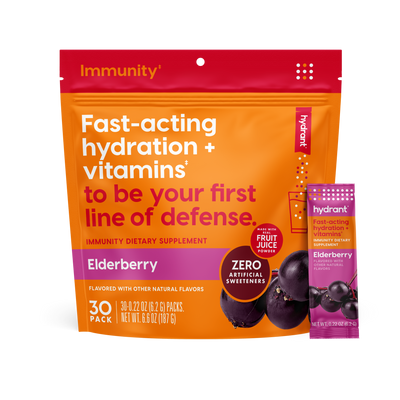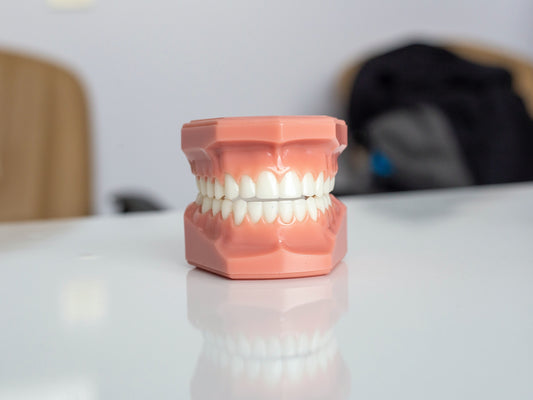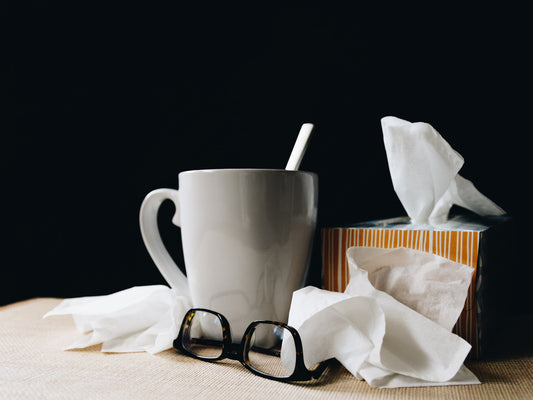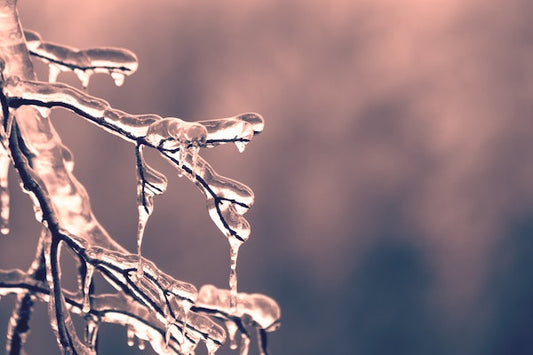Migraines are one of the most ubiquitous diseases and daily disablers [1], yet the cause, and prediction of onsetting migraines, and how to alleviate those who are afflicted by them still has room for more research. [2]
Though there’s no universal cure for migraines, there are certainly plenty of studies that have attempted to find one, or at least to isolate the biochemical factors or genetic predispositions of migraines. Each study offers a tiny piece of the puzzle.
We looked into the latest research to see what, if any, link scientists have found specifically between dehydration and the frequency and intensity of migraines. We know there’s no magic migraine relief, but we aimed to investigate the feasibility of relying on daily hydration to help keep migraines at bay.
What’s the difference between a migraine and a headache?

Before we get going, it’s worth taking a moment to clarify the difference between a headache and a migraine. The American Migration Foundation says: “When people hear the term ‘migraine,’ they often think of a severe headache. What they don’t always know is that migraine is a neurological disease and that there are a number of different subtypes of migraine” [3]. So it seems that there are degrees, or “subtypes” of migraines.
Given the varying degrees of migraine severity, it’s difficult to distinguish the exact point at which a bad headache clinically becomes a migraine. It’s usually specific symptoms, rather than the head pain itself, which set apart a headache from a migraine. The duration of the headache may also be used as an indicator to distinguish one from the other. The Migraine Trust, a UK-based charity that supports migraine research, provides a symptom- and duration-dependent definition of a migraine:
“In general terms, migraine attacks are experienced as a headache of at least moderate severity usually on one side of the head and occurring with other symptoms such as nausea, vomiting, sensitivity to light and noise (though some people experience migraine without headache). The headache is usually made worse by physical activity. Migraine attacks usually last from 4 to 72 hours and in most cases, there is complete freedom from symptoms between attacks. Certain factors are involved in triggering an attack in those predisposed to migraine. These are usually called trigger factors and can include lifestyle, and hormonal changes.” [4]
What research has been done on dehydration and migraines?
In 2004, scientist Joseph Norman Blau taught a headache class to medical students. Two of the students commented that they got headaches when they had been deprived of water, but neither tutor nor student could find any description of a dehydration-induced headache in the scientific literature. Curious, they conducted a small study to investigate the occurrence of a specific sort of headache brought about by not drinking enough water. The results led them to conclude that, although they couldn’t identify the underlying mechanism, a new type of headache called a ‘water-deprivation headache’ should be classified [5]. Blau’s research wasn’t specific to migraines, but it did raise some interesting questions regarding the relationship between water-insufficiency and the occurrence of migraines.
In 2006, scientists in Delhi at the University College of Medical Scientists decided to look specifically into this question after meeting a patient who reported migraines that came on if he didn’t drink enough water. If the patient drank water when he first got the headache, the symptoms were relieved, but if he didn’t, it turned into a full-blown migraine that he couldn’t relieve with water. More investigation was needed [6].
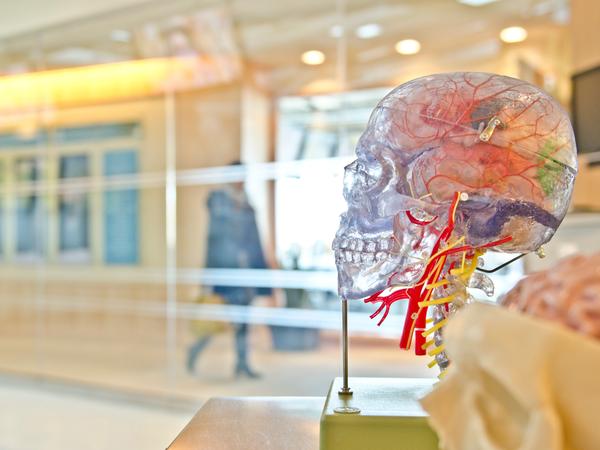
Fast forward to 2015 and science has come a long way into investigating the mechanisms behind migraines. A paper by Dahlem and colleagues suggests that some of the things we think of as triggers are actually early symptoms of migraine, or that we experience things as more stressful or intense if we are about to have a migraine. For example, many migraine sufferers report that normal light seems brighter just before experiencing a migraine. The experience of bright light might not be the migraine trigger, but an indication that some other biochemical mechanism has been triggered, and that a migraine is soon to come. In this case, we need to look at the events happening in the brain and body while the patient is experiencing light sensitivity, not after [7].
Around this time, Borkum suggested that oxidative stress may be one of these biochemical mechanisms. Oxidative stress occurs when a molecule loses either an electron or a hydrogen atom, and thus becomes an oxidant. Changing into an oxidant changes a molecule’s chemical functionality, for better or worse. In fact, some oxidation is needed in the body; oxidation is often key to sending cellular signals. But too much oxidation can lead to a breakdown of cell membrane lipids, essential enzymes, or other critical macromolecules. Too much damage to cellular components and disease results. So, the theory is that migraine triggers work by increasing oxidative stress in the brain, which in turn causes the migraine. They analyzed some experiments performed on mice that showed that dehydration increased the amount of vasopressin in the blood. The increased amount of vasopressin causes the release of a second molecule called endothelin, which is a key player in causing oxidative stress. It’s likely that a similar process happens in humans [8].
In 2018, research went one step further to look at whether your perception of a trigger affects the strength of your migraine symptoms or the action of the trigger on your body. In other words, does your psychology change your experience of a migraine? Although the findings were preliminary, there’s evidence to suggest that there’s a degree of subjectivity of experience involved. Soon, we may discover that even thinking you are dehydrated might cause you to experience a headache or migraine! [9]
So, where has all this got us? There is still a lot to learn, and scientists certainly have their work cut out for them. But what can we actually say now about the role of dehydration in migraines?
1. Dehydration seems to be a trigger for migraines.
The American Migraine Foundation says that dehydration is a trigger for migraine in 1 in 3 sufferers [10]. Remember, as soon as you expel more water than you take in, you are on the road to dehydration. Keeping on top of your hydration is super important, especially because dehydration begins well before the experience of its symptoms. When in doubt, drink some water.
2. There is debate regarding whether fluid therapy via IV will help your migraine.
Many companies are now offering IV (intravenous fluids) to help with migraines. The idea is to get the fluid into your bloodstream as soon as possible. However, there are studies to suggest that this offers no help for sustained headache relief [11]. If you want to try hydration as a treatment for migraine, we recommend fluids and electrolytes, not plain water alone. Find out why here.

As with any health condition, being mindful of stress levels and maintaining good general health seem to be important migraine management techniques. As a general rule of life, the better you care for the body, the healthier you will be, and the less likely you will be to suffer from pain and illness. Hydration is an essential part of that self-care.
What Causes Dehydration?
This is not going to be an exhaustive list. What causes dehydration for one person won't be the cause for someone else, but the most common link to dehydration is the fundamental lack of drinking enough water [12]. Most of the time, healthy adults should be drinking between six and eight glasses of water per day [13]. When thirsty, the act of drinking water is usually enough to quench it. The rest of the time, dehydration can be caused when your body is letting go of water, and this happens in a variety of ways, including:
Sweating
Sweating when overheated or during a workout/overexertion/carrying heavy equipment. We sweat most when our heart rate is high, and fever can do this as much as being in the heat outdoors [14]
Episodes Of Illness
Most people experience dehydration when they are ill as the fluid in their bodies is lost very quickly as the body cannot hold onto it, whether through diarrhea or vomiting.
Emotions
Excessive crying can dehydrate you with enough tears, as you are losing water. During those times where life is hard, and tears are regular, dehydration can occur.
Alcohol
Everyone loves a glass of wine or two, but not everyone realizes that alcohol is a diuretic. A diuretic makes you urinate far more frequently, and the after-effects of alcohol–namely a hangover–indicates that your body is severely dehydrated and needs fluids.
Diabetes
People with diabetes often find out that they have diabetes when symptoms such as frequent urination and excessive thirst present. The risk of dehydration as a person with diabetes is higher, due to the higher levels of glucose in the bloodstream. The kidneys of a person with diabetes try to rid the body of the glucose by the formation of urine; which then can cause dehydration. [15]
Losing more fluid than you take in and not replacing that fluid can cause dehydration to set in. As well as this, the extreme climate, the exercise that you are doing and even your diet can have an impact on your hydration levels. If any of these situations are occurring for you, then regularly replacing those lost fluids is the answer. You don't have to wait for hot weather to lose fluid through sweating, either, and you have to pay attention to what is going to make you sweat and combat it before it becomes a problem.
What Are The Signs Of Dehydration?
Dehydration in one person won't look the same as in another, and it can be from mild to severe. It all depends on how much of your body weight has been lost through the water. There are two undeniable and early signs of dehydration [16], and that's the triggering of thirst and your urine darkening in color. Your body does this to try and increase your water intake while at the same time, trying to slow down the loss of water.

There are other symptoms of dehydration that you need to be aware of if you hope to catch those symptoms as they happen. These include:
- Dizziness and lightheadedness
- Thirst
- Headaches that start lightly and build
- Muscle cramps
- Mood changes
- Extreme tiredness and lethargy
- Skin changes
- Dry lips and mouth
- Scratchy, dry eyes
- Heart rate changes
- Infrequent urination
- Loss of strength or stamina
How Do You Get Ahead of Dehydration?
[17] It sounds simple, but one of the best and most effective ways to get ahead of dehydration or help yourself if experiencing symptoms of dehydration is to rehydrate the body as soon as possible by drinking fluids. Water is the best option, but if you've lost electrolytes, you may want to look into drink mixes to help replace these lost minerals to help the body rehydrate quickly.
We've mentioned oral rehydration solutions, and that's where we can help. Our products follow the WHO guidelines for Oral Rehydration Solutions (ORS) and have a balanced boost of electrolytes to help cut through dehydration and hydrate you quickly. Plus, all of our products contain real fruit juice powder for a light, refreshing taste and you can re-establish the right balance of body fluids again. [18] Cheers to hydration!
Writer: Ailsa McKinlay
Editor: Elizabeth Trelstad, www.hellobeaker.com
References
[1] Steiner et al. Migraine; The Seventh Disabler. The Journal of Headache and Pain. 2013. 14:1. - Scientists comment on the classification of migraine as a “disabling disease.”
[2] Headache Disorders. World Health Organization. 8 April 2016. - The WHO provides a high-level fact sheet about headache disorders and the stress they place on individuals and on society.
[3] The American Migraine Foundation. What type of headache do you have? - This guide by the American Migration Foundation can help you to work out what sort of migraine you have. Use the link to download your free guide.
[4] The Migraine Trust. Headache. - This page lays out the basic definitions of and distinctions between headaches and migraines.
[5] Blau, Kell and Sperling. Water-Deprivation Headache: A New Headache With Two Variants. Headache 2004;44:79-83. - A short report written on headaches and water deprivation.
[6] Bhatia, Gupta and Srivastava. Migraine associated with water deprivation and progressive myopia. Blackwell Publishing Ltd. Cephalalgia, 2006, 26, 758–760. - The findings of scientists looking at a patient whose migraine was linked to water intake.
[7] Dahlem et al. Understanding migraine using dynamic network biomarkers. Cephalalgia 2015, Vol. 35(7) 627–630 - This paper looks at how we experience migraine triggers and suggests that the key to understanding migraines lies in further investigating what goes on at the beginning of an attack.
[8] Borkum. Migraine Triggers and Oxidative Stress: A Narrative Review and Synthesis. Headache. 56:12-35. - This paper analyzes several migraine triggers, including dehydration.
[9] Turner and Houle. Influences on headache trigger beliefs and perceptions. Cephalalgia. 2018, Vol. 38(9) 1545–1553. - This article reviews what we know to be migraine triggers, how often we encounter those triggers, and how we experience headaches.
[10] The American Migration Foundation. Top 10 migraine triggers and how to deal with them. - This article reviews the most common migraine triggers.
[11] Balbin et al. Intravenous fluids for migraine: a post hoc analysis of clinical trial data. The American Journal of Emergency Medicine. April 2016 Volume 34, Issue 4, Pages 713–716 - This article reviews the findings of studies that have investigated the utility of IV fluid treatments for migraine relief. While it is a helpful overview of a fairly large topic, this article only focuses on the specific use of IV metoclopramide.
[12] https://www.emedicinehealth.com/dehydration_in_adults/article_em.htm
[13] https://www.healthline.com/nutrition/how-much-water-should-you-drink-per-day
[14] https://www.nhsinform.scot/illnesses-and-conditions/nutritional/dehydration
[15] https://www.nhsinform.scot/illnesses-and-conditions/nutritional/dehydration#causes-of-dehydration
[16] https://www.webmd.com/a-to-z-guides/dehydration-adults#1
[17] https://www.wellandgood.com/good-advice/6-ways-to-hydrate-better/












